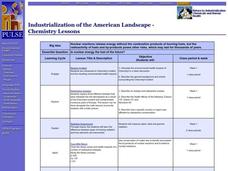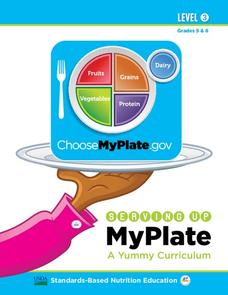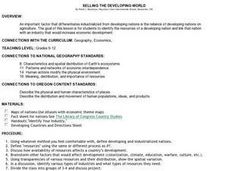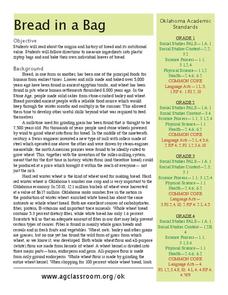Roy Rosenzweig Center for History and New Media
Labor Unions in an Industrializing U.S.
Have class members eager to enter the workforce? They'll be glad to learn that things aren't how they used to be. Have your young historians examine then discuss four primary source images related to the negative effects of...
Curated OER
Industrialization of the American Landscape
Students summarize the three sectors of industry and how these sectors applied to the Industrial Revolution. Students apply their skills in research and note-taking, as well as vocabulary building through web organizers. Students...
Curated OER
The New Haven Oyster Industry and Water Quality
Students examine the different types of water pollutants and how they affect the waterways. In this environmental science lesson, students collect and interpret data from government agencies. They discuss how industrial development in...
Benjamin Franklin Tercentenary
Simple Machines, Ben Franklin and the Technology of the 1700s
Benjamin Franklin was an inventor, and he was fascinated by the mechanics of machinery. Using a fun exploration, pupils examine simple machines from the pre-Industrial era. Then, they must identify and build their own using common objects.
Curated OER
Industrialization of the American Landscape
Students explore the Chernobyl incident and the resulting environmental health impacts. They explore three different isotopes that were released into the atmosphere. Through inquiry, students determine the difference between types of...
Curated OER
Fun Faces of Wisconsin Agriculture: Curley's Beef Fast Facts
Students explore animal slaughter by researching the Wisconsin beef industry. In this meat statistics lesson, students practice using different math functions to identify how many burgers or sports equipment can be made from one...
Curated OER
Real-World Projects: Challenges from the Polymer Industry
Two scenarios are presented for chemistry detectives to decipher. Both require the use of an infrared spectrometer and focus on the examination of polymer materials. In the first, lumps in polyethylene bottles are analyzed. In the...
Curated OER
Fisheries Management in the Open Ocean
Students explore biology by researching fishing equipment. In this oceanography lesson, students discuss the impact of human technology on the fish population. Students utilize marbles as a visual aide and complete fish population...
US Department of Agriculture
Serving Up My Plate
Within three nutrition-themed, inquiry-based learning opportunities, pupils take notice of their eating habits; delve deep into the five food groups, gain experience in planning meals, participate in a taste test, and explore ads from...
Achieve
Rabbit Food
Keep your pets slim, trim, and healthy using mathematics! Pupils use a linear programming model to optimize the amount and type of food to provide to a pet rabbit. They model constraints by graphing inequalities and use them to analyze a...
Curated OER
Industrial Processes of Polymers: How Toys Are Made
Learners explore the industrial engineering process used to make everyday materials. In this chemistry and environmental lesson plan, students learn about how different materials are made and learn about different types of polymers used...
Curated OER
Personal Body Types
Students are introduced to the four main body types. Individually, they label their own body type and disover which styles would be most flattering to their figure. To end the lesson, they design an outfit for themselves and present it...
Curated OER
Thomas Edison's Inventions in the 1900s and Today: From "New" to You!
Students research types of technology available to Americans at the beginning of the 20th century and compare the style of living to modern times. They identify Thomas Edison's contributions to technology and their own current lifestyles.
Curated OER
A Walk on the West Side
Learners comprehend what makes up the physical community. Read and construct scale drawings and models. Explore the history of infrastructures and how the contributions of science, math and industry have led to the development of their...
Government of South Australia
Don't Waste Your Energy
Don't lift another finger, this physical and environmental science unit has everything you need to begin teaching your class about energy. Starting with a look at the greenhouse effect, these lessons and activities take young scientists...
Curated OER
Selling the Developing World
Students compare and contrast the industrialized nations with the developing ones. In groups, they link a developing country with a industrialized one that could increase its economic development. They present their findings to the class...
Curated OER
Popular Music and Music Videos
This resource is part of a three-activity unit that introduces your class to the concept of popular culture and the role that it plays in their lives. Here, learners examine the importance of the music industry and music videos in pop...
Curated OER
Science as a Catalyst for Life-Long Learning
Young scholars determine the minimal inhibitory concentration and the minimal fungicidal concentration of two types of drugs used to combat fungal infection. They use several different types of in vitro techniques which are performed in...
Smithsonian Institution
Art to Zoo: Life in the Promised Land: African-American Migrants in Northern Cities, 1916-1940
This is a fantastic resource designed for learners to envision what it was like for the three million African-Americans who migrated to urban industrial centers of the northern United States between 1910 and 1940. After reading a...
Curated OER
Bread in a Bag
Could the history of bread really be interesting? Yes, it could! An informational text gives scholars wheat production background from 8,000 years ago, discussing different types of bread and the current industry in Oklahoma. Learners...
Curated OER
Video Game Violence: Explore Possible Impacts
Introduce middle schoolers to the issue of video game violence with a multifaceted approach. Learners complete a gaming survey, as well as read and discuss a news feature about violent video game sales and a handout on stimulus...
NOAA
Oceans of Energy
Are the earth's oceans really just giant batteries, waiting for their energy to be harnessed? Middle school mechanical engineers will be shocked by the amazing amount of energy that forms around them after diving into part four of a...
Kenan Fellows
Attack of the Aphids!
Insects threaten the food production industry, and aphids are one of the big players! Analyzing data of aphid populations gives insight into their behaviors. Learners model the population data of an uninhibited population with an...
Curated OER
Economies
Students discover different economic systems. In this global economy lesson, students research the levels of economic activity, types of economies, maquiladoras and the differences between a free market economy and other systems. This...

























